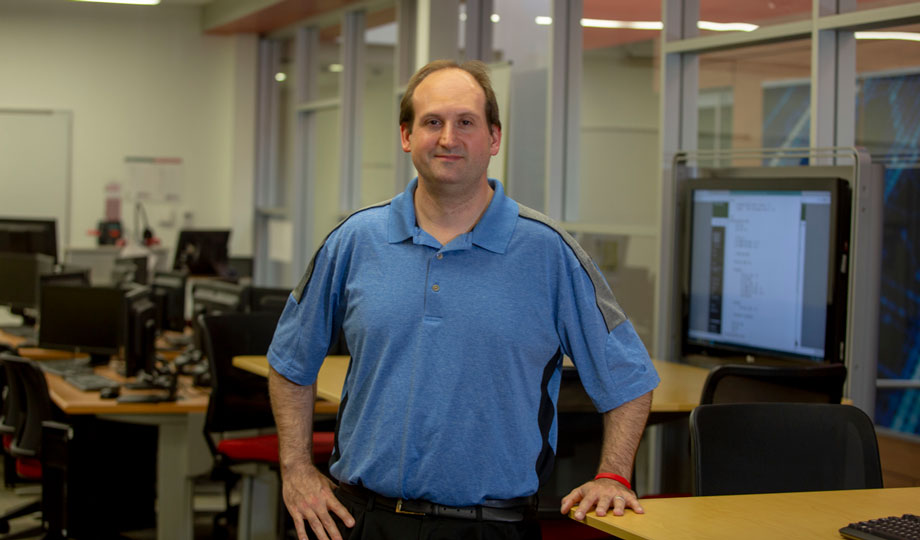
Program: Computer and Information Science
Some of Bradley Sward’s first memories are of seeing Apple II computers at his kindergarten open house.
Soon after, he was learning BASIC and moving simple graphics around the screen.
“Our family had an Atari at that time, so I remember playing classic games like Combat and Pitfall,” he said. “By the time Super Mario Bros. came out, I went right to designing my own levels. I should try to find those plans, since Nintendo has made it possible to do something with them now!”
Sward, who earned his bachelor’s degree at Benedictine University and a master’s degree at DePaul University, didn’t work with computers after college. Instead, he was a pharmaceutical research chemist in a manufacturing environment. During this time, he quality tested specific medications given to his brother after an emergency surgery.
After taking a few more courses, he spent five years developing casino games on the northwest side of Chicago. Sward then transitioned to teaching, something that his professors had hinted would interest him.
“Since I always loved learning, they knew I would transfer well into the role of a professional student,” he said. “When I first started working in software development, I was surprised that many of the skills and roles required of us were never directly taught. To counteract this, I want my students to be more than prepared for the interview process and their first jobs in the field.”
Sward first taught computer programming and game development at Technology Center of DuPage before coming to College of DuPage. He wants his students to understand that using computers for problem solving is a natural and ever-present extension of the things people do in their everyday lives.
“Algorithms for solving problems are used everywhere, from tying our shoes to determining the best directions to get from place to place,” he said. “Problem solvers and those with software development skills will always be in high demand. Students who commit foundational logic, mathematics and programming skills into portfolio pieces show mastery of these skills and will get into interviews for better jobs.”
He remembers how his favorite high school chemistry teacher always had unique and interesting problems for students to solve. As a result, Sward finds great inspiration in discovering fun and challenging ways to inspire better problem solving in his students.
“Experience is so important since the problems we solve often tend to be variations of ones previously solved. With nothing to solve there is no job to perform, so problems truly are opportunities!”